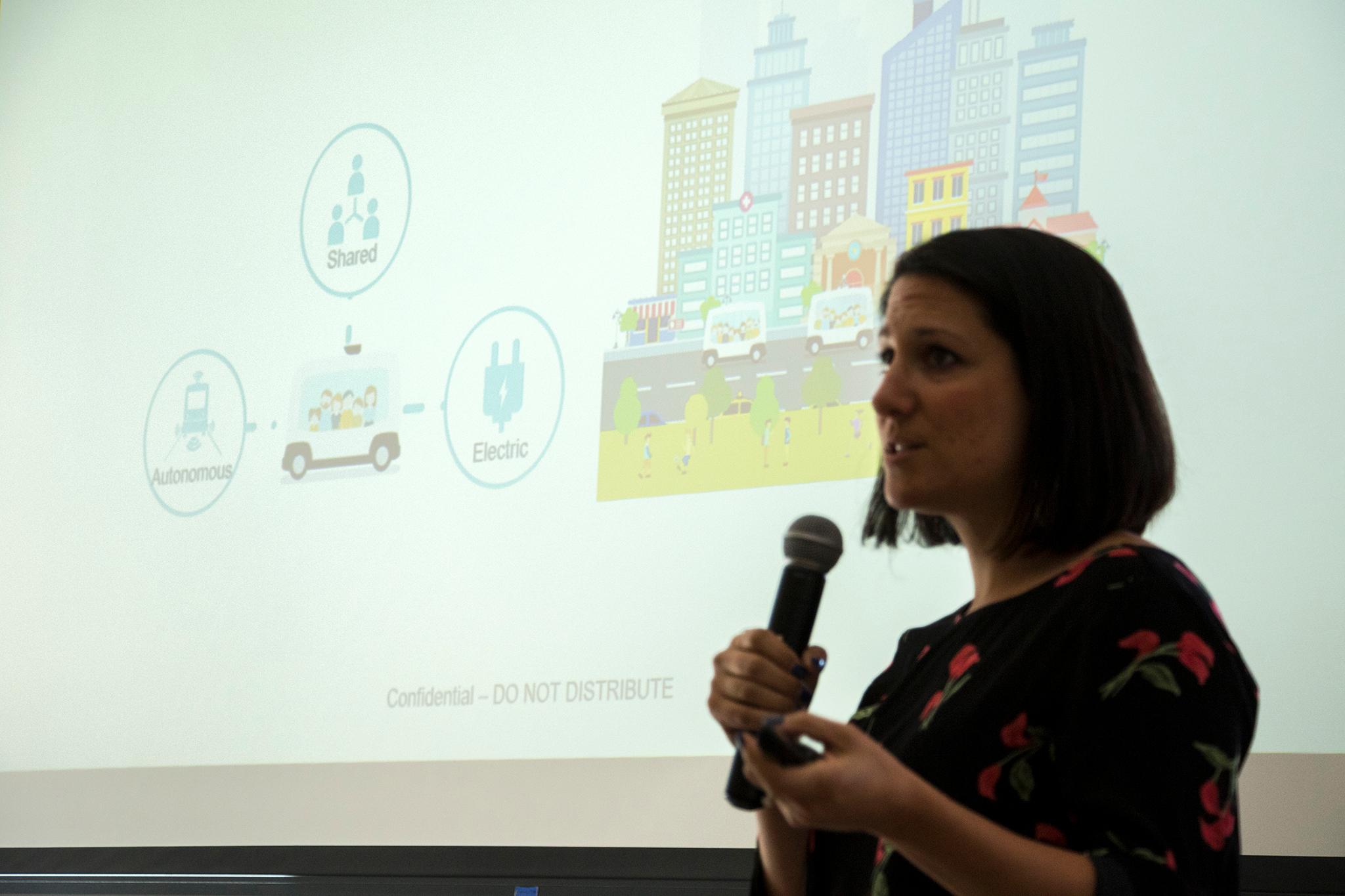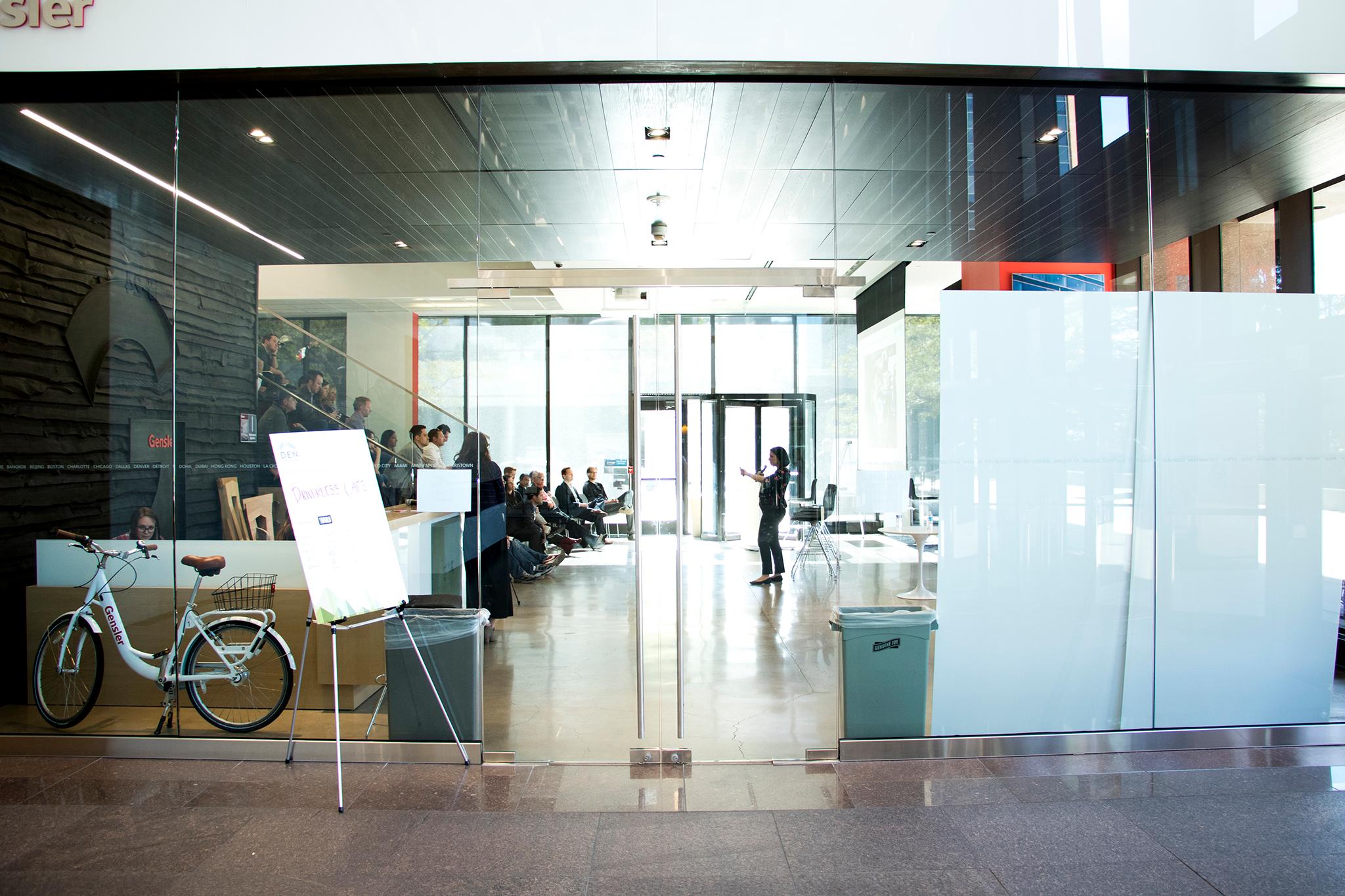The future is here. Driverless are coming, they’re coming fast, and they’re going to have an extremely disruptive impact on the global and domestic marketplace.
That's according to the experts present at a Denver Startup Week panel about autonomous vehicles. The panelists also said they'll fundamentally reshape the way we consider creating infrastructure.
At the downtown Denver offices of architecture firm Gensler, a full room sat captivated by visions of the future many fewer people driving cars, especially in dense, urban areas.
The panelists said driverless vehicles will be prevalent in Denver in the next five years.
The primary benefit of shifting to autonomous cars would be safety, according to the panel. According to Rutt Bridges, executive director of Understanding Disruption Inc, in 2016, 37,416 Americans died in car accidents, and an additional 4.4 million people got injured.
According to Lauren Isaac, director of business initiatives at Easy Mile, a France-based autonomous vehicle company with their North American headquarters in Denver, over 80 percent of these incidents were the result of driver errors. The panel concluded that proliferating autonomous cars would help Denver and peer cities with their ambitious goal of virtually ending deaths on the roadway.
Rutt made a case that cities shouldn't spend money on infrastructure for public transit, because those options are less convenient — they take twice as long, he said — and less economical than self-driving cars.
Isaac, however, suggested that these vehicles could be used to help usher people toward mass transportation options like a light rail station.
Both said that the most economical way for people to use autonomous vehicles is in a shared ride fashion akin to how we use Lyft and Uber. Isaac said that individual use of these vehicles would be an infrastructure nightmare due to the number of cars that would be on the road and the idle time between uses.

So if they’re correct, what does it mean for Denver?
According to Mather, the city's infrastructure will have to be created in ways that address this new dimension of transportation.
“It makes sense because it's an investment in our future, and as community leaders to invest in proper infrastructure development is critical, because frankly, it will save lots of money down the road, because if we keep building systems and infrastructure the way we have it's going to be obsolete, or it's going to miss the mark,” Mather said. “Our community is very progressive; we have great leadership, we've had that in this market with the mayors, the last three to four mayors. That sets a tone with a great vision, so now's the time, and we could truly be on the leading edge.”
The government will be a necessary partner if driverless cars are going to proliferate and according to Ryan Rice, director of mobility operations at the Colorado Department of Transportation, they're all about it.
“We believe it's one of the best ways in the future if not the best way to save lives and improve the efficiency of the roadways,” Rice said.
He talked up the department's role in the future of automation, from regulation to advising the U.S. Department of Transportation.
"When I say infrastructure I don't mean just the asphalt," Rice said. "I'm talking the physical and digital infrastructure of the transportation system. We play a huge role in that. Autonomous vehicles are fed by data, plain and simple, and we provide a lot of data."
Rice said the department can provide physical improvements like extra reflective striping on roadways and other digital data that can help driverless cars operate without relying solely on mechanical eyes. He also said that adequately collecting data involving the timing of lights will avoid chaos on the road because a single point of failure could cause significant problems for driverless cars.
Isaac believes that its that type of commitment that will allow the city and state to be at the forefront of this transportation revolution.
“I actually think both Denver and Colorado are pretty far ahead," she said. "From the state perspective, Colorado is one of the few states that has passed autonomous vehicle-specific legislation, and in Denver, we are going to be launching a project with our driverless shuttles soon."
Rutt cautioned that although we may have the theoretical means to advance the cause of automated cars, we may be late to the party of implementation due to our weather elements.
"Winter is a problem they have not solved yet," he said. "In other countries like Norway, there's a lot of work going on about how you navigate ice and snow, but they haven't nailed it yet, and so it will get here somewhat later, but that's probably a two-year delay. We're probably talking about five years from now it arrives in significant quantities in Denver.”
Driverless cars will also have a dramatic and disruptive impact on the economy here and elsewhere, they said.
Brent Mather, a principal architect at Gensler, said that in about 15 years car ownership would virtually disappear.
This shift would have implications for other industries that cater to our individual-owned car culture, like car washes, mechanics, parking structures, and car dealerships. The panelists said that it would make sense for the companies that are supplying autonomous vehicles to use electric cars and that will invariably have an impact on the fueling sources like gas stations.
Levi Tillemann, managing partner of Valence Strategic, commented during a question-and-answer session that while technology can help with mobility in our society, it’s crucial not to allow large companies to cut out communities to make profit gains.
“I think one of the big challenges going forward is to find that sweet spot between innovation, environmental progress, and social equity and it's not an easy balancing act,” he said.













